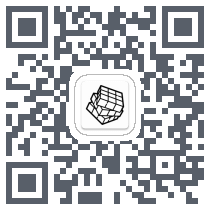Study,acquire more knowledge, things do not become
and more mysterious."Does knowledge render things more comprehensible, or more complex and
mysterious? In my view the acquisition of knowledge brings about all three at the same ti
me. This paradoxical result is aptly explained and illustrated by a number of advances in
our scientific knowledge. Consider, for example, the sonar system on which blind bats rely
to navigate and especially to seek prey. Researchers have learned that this system is sta
rtlingly sophisticated. By emitting audible sounds, then processing the returning echoes,
a bat can determine in a nanosecond not only how far away its moving prey is but also the
prey's speed, direction, size and even specie! This knowledge acquired helps explain, of c
ourse, how bats navigate and survive. Yet at the same time this knowledge points out the i
ncredible complexity of the auditory and brain functions of certain animals, even of mere
humans, and creates a certain mystery and wonder about how such systems ever evolved organ
ically.Or consider our knowledge of the universe. Advances in telescope and space-explorat
ion technology seem to corroborate the theory of a continually expanding universe that beg
an at the very beginning of time with a "big bang." On one level this knowledge, assuming
it qualifies as such, helps us comprehend our place in the universe and our ultimate desti
ny. Yet on the other hand it adds yet another chapter to the mystery about what existed be
fore time and the universe. Or consider the area of atomic physics. The naked human eye pe
rceives very little, of course, of the complexity of matter. To our distant ancestors the
physical world appeared simple--seemingly comprehensible by means of sight and touch. Then
by way of scientific knowledge we learned that all matter is comprised of atoms, which ar
e further comprised of protons, neutrons, and electrons. Then we discovered an even more b
asic unit of matter called the quark. And now a new so-called "string" theory posits the e
xistence of an even more fundamental, and universal, unit of matter. On the one hand, thes
e discoveries have rendered things more comprehensible, by explaining and reconciling empi
rical observations of how matter behaves. The string theory also reconciles the discrepanc
y between the quantum and wave theories of physics. On the other hand, each discovery has
in turn revealed that matter is more complex than previously thought. In fact, the string
theory, which is theoretically sound, calls for seven more dimensions---in addition to the
three we already know about! I'm hard-pressed to imagine anything more complex or mysteri
ous.In sum, the statement overlooks a paradox about knowledge acquired, at least when it c
omes to understanding the physical world. When through knowledge a thing becomes more comp
rehensible and explainable we realize at the same time that it is more complex and mysteri
ous than previously thought.



